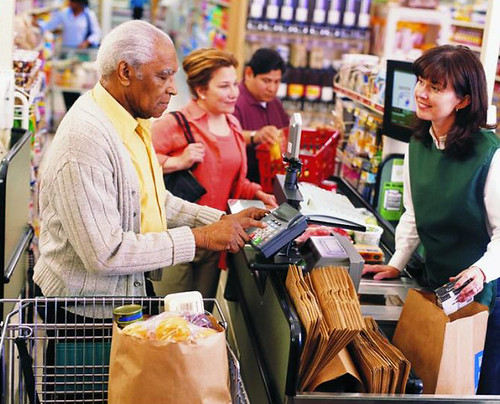
March is National Nutrition Month. Throughout the month, USDA will be highlighting results of our efforts to improve access to safe, healthy food for all Americans and supporting the health of our next generation.
Even as the economy improves, many Americans continue to need a helping hand putting food on the table. Many of our most vulnerable low income citizens still have trouble obtaining meaningful jobs due to barriers such as lack of education, transportation, or child care. Outreach helps people understand whether they may be eligible for USDA’s Supplemental Nutrition Assistance Program and how it can supplement their current food budget. But in the end, whether or not to participate in SNAP is a personal decision. This is a core part of the SNAP regulations and a guiding factor in SNAP outreach strategies.
Today, USDA published a proposed rule that codifies portions of the 2014 Farm Bill related to outreach that further strengthen guidelines against recruitment. Outreach activities designed to pressure or persuade a person to apply for benefits are not allowed. Furthermore, as directed by the Farm Bill, the proposed rule specifically prohibits radio, television or billboard advertising. The proposed rule would also prohibit organizations receiving funds under the Food and Nutrition Act of 2008 from tying compensation for outreach workers to the number of people who apply for SNAP benefits as a result of their efforts, also part of the Farm Bill.
States will still be able to provide basic program information to individuals who may be eligible, such as explaining program rules and benefits. Understanding program basics helps people make an informed decision about whether to apply for SNAP benefits, based on facts rather than myths and misinformation. Providing this basic program information to vulnerable populations including the elderly, homeless and individuals with disabilities may be especially important to ensure they get the food assistance they need and for which they may be eligible. This is an important consideration, given that almost two-thirds of those participating in SNAP are children, elderly or disabled. Organizations that receive funding for The Emergency Food Assistance Program and the Food Distribution Program on Indian Reservations will also be subject to the proposed rule.
Many of these practices are already in place but these rules serve to reiterate the importance of providing basic information about SNAP so that you can determine for yourself if SNAP is right for you and your family.



